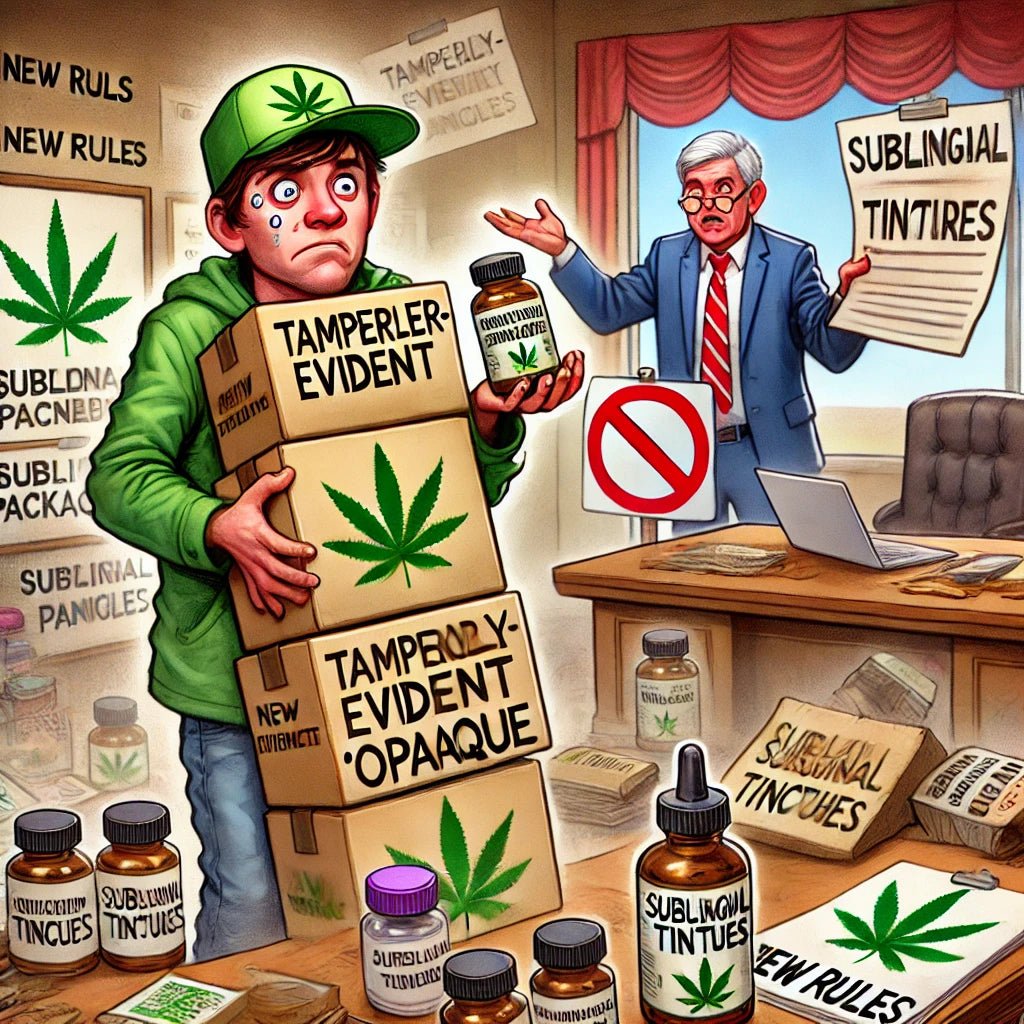Understanding the Impact of the Rural Prosperity and Food Security Act of 2024 on Cannabinoid Businesses
The Rural Prosperity and Food Security Act of 2024 has introduced transformative changes for hemp production in the United States, particularly for cannabinoid-based businesses. At the heart of these changes is the General Hemp License, which imposes stricter compliance measures while reshaping the market for cannabinoids. For producers, the prohibition of synthetic conversions like Delta-8 and Delta-10 THC and the need to focus on Delta-9 THC offers both challenges and opportunities.
This article details how these changes affect cannabinoid businesses and how they can adapt.
Delta-8 and Delta-10 THC: The End of Converted Cannabinoid Conversions
A significant shift in the legislation is the explicit prohibition on the conversion of one cannabinoid into another. This ban directly impacts the production of Delta-8 and Delta-10 THC, two cannabinoids that have become highly popular in the hemp market due to their psychoactive properties and federal legality under the 2018 Farm Bill.
Key Points on Delta-8 and Delta-10 THC:
- Prohibited Conversions:
- The new framework bans the chemical conversion of CBD or other cannabinoids into Delta-8 or Delta-10 THC.
- The legislation emphasizes maintaining the natural integrity of cannabinoids, ruling out synthetic or semi-synthetic production.
- Impact on Market Trends:
- Delta-8 and Delta-10 THC had filled a gap in states where recreational marijuana remained illegal, offering consumers a legal psychoactive option.
- This prohibition eliminates these products from the market, forcing businesses to retool operations.
- Consumer Safety:
- The restrictions stem from concerns about the safety of synthetic cannabinoids, which often lack consistent quality control and pose health risks.
Delta-9 THC: The Path Forward for Hemp Businesses
The legislation allows the production and sale of hemp-derived Delta-9 THC products, provided they comply with the new total THC limit of 0.3% on a dry weight basis. This change requires businesses to pivot toward compliant Delta-9 THC products to remain competitive.
Why Delta-9 THC Remains Legal:
- Natural Occurrence: Delta-9 THC is naturally present in hemp plants, making it a legitimate cannabinoid under the federal definition of hemp.
- Strict THC Compliance: Products must still adhere to the total THC threshold, ensuring that hemp-derived Delta-9 remains non-intoxicating.
Opportunities with Delta-9 THC:
- Delta-9 THC Gummies and Edibles:
- Businesses can produce and market gummies, tinctures, and edibles containing hemp-derived Delta-9 THC, provided they stay within the 0.3% total THC limit.
- The shift to Delta-9 THC allows businesses to cater to psychoactive product consumers while staying within the law.
- Focus on Microdosing:
- With the strict THC limits, products aimed at microdosing—small, controlled amounts of Delta-9 THC—offer a promising market segment.
- Premium Branding:
- Hemp-derived Delta-9 THC products can be marketed as premium, compliant alternatives to synthetic cannabinoids, capitalizing on consumer trust.
Compliance Challenges for Delta-9 THC Products
Producing compliant Delta-9 THC products under the General Hemp License comes with its own set of challenges:
- THC Testing and Monitoring:
- Total THC testing now includes tetrahydrocannabinolic acid (THCA), a precursor that converts to Delta-9 THC when heated. This means businesses must monitor both raw hemp material and finished products for compliance.
- Product Design and Weight Ratios:
- Edibles and other Delta-9 THC products must calculate the THC concentration based on total dry weight. This requires careful formulation to ensure compliance.
- Certified Genetics:
- Businesses must source compliant hemp strains, often through certified seed programs, to minimize the risk of non-compliance.
Adapting to the New Reality: Strategies for Success
1. Transition from Delta-8/Delta-10 to Delta-9 THC
- Reformulate Products:
- Reformulate existing Delta-8 and Delta-10 products to incorporate hemp-derived Delta-9 THC the natural cannabinoid.
- Focus on Delta 9 THC-compliant products that appeal to both recreational and wellness markets.
- Educate Consumers:
- Launch educational campaigns to help consumers understand the shift to Delta-9 THC and its benefits over synthetic cannabinoids.
2. Invest in Certified Genetics
- Use state- or tribe-certified hemp seeds to ensure total THC compliance.
- Certified genetics reduce the need for frequent testing and lower operational risks.
3. Develop High-Quality Delta-9 THC Products
- Focus on product quality and transparency to build consumer trust.
- Offer lab-tested, compliant Delta-9 THC products with clear labeling.
4. Diversify Product Offerings
- Expand into non-intoxicating cannabinoids like CBD, CBG, and CBC to balance revenue streams. Get rip of that gross THCP and HHC stuff.
- Explore industrial hemp applications, such as fiber and textiles, as alternative markets.
Challenges Ahead for Cannabinoid Businesses
- Increased Compliance Costs:
- Testing for total THC, sourcing certified genetics, and maintaining compliance documentation add to operational expenses.
- Loss of Popular Products:
- The prohibition on Delta-8, Delta-10 THC, THCO, HHC, THCP, THCX, THCH removes two of the industry’s most profitable product categories.
- Regulatory Complexity:
- Navigating the stricter licensing framework and adapting to new rules requires significant investment in legal and operational expertise.
- Opportunities in the New Era
While the General Hemp License introduces challenges, it also opens doors for innovation and growth:
- Premium Delta-9 THC Products:
- The shift to Delta-9 THC offers a chance to create premium, legally compliant products that appeal to health-conscious consumers.
- Microdosing Market Growth:
- Low-dose Delta-9 THC products align with growing consumer demand for controlled, functional cannabis experiences.
- Consumer Trust:
- By focusing on natural cannabinoids and avoiding synthetic processes, businesses can position themselves as trusted leaders in a regulated market.
Conclusion: Navigating the General Hemp License Framework
The General Hemp License under the Rural Prosperity and Food Security Act of 2024 redefines the landscape for cannabinoid businesses. By banning conversions like Delta-8 and Delta-10 THC and emphasizing compliance with total THC limits, the legislation aims to ensure consumer safety and market transparency.
For businesses, this means a necessary pivot toward hemp-derived Delta-9 THC and non-intoxicating cannabinoids like CBD and CBG.
Adapting to these changes requires strategic investments in compliance, education, and product innovation. While the challenges are significant, the opportunities for those who embrace this new regulatory environment are equally promising. The future of cannabinoid production is here—let’s shape it responsibly and sustainably.








































